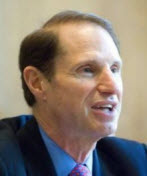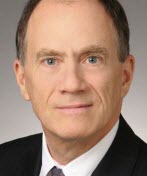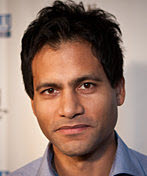In the latest from the Brookings Essay series, “The Big Snoop,” Stuart Taylor, Jr. takes a fresh look at the NSA controversy in the wake of Edward Snowden’s revelations about the massive scope of the National Security Agency’s monitoring of phone records and online communications. Taylor collected the divergent views of four prominent experts to help understand the revelations and to frame the debate over the future of the NSA in the post-Snowden era.
Taylor interviewed Senators Dianne Feinstein (D-Calif.) and Ron Wyden (D-Ore.), plus Joel Brenner, the NSA’s former inspector general, and Jameel Jaffer, deputy legal director of the ACLU.
“All four not only believe deeply in the Constitution,” Taylor writes in the essay, “they know it well.” He continues:
Despite their differences, they also understand that the right to privacy is itself a conundrum, and that it has become more so with the passage of time. Therefore all four would agree with the proposition that there need to be reforms that take account of a changing world. What those reforms should be is where they come to a parting of the ways.
What follows here is merely a highlight of Taylor’s interviews and analysis with these four public figures. Visit “The Big Snoop” to find out more of what they told him, plus watch videos of what average Americans think about the NSA, learn more about the Fourth Amendment, and explore myths and facts about the NSA’s programs. And, find out what we at Brookings track and know about your visit to our website.
 Senator Dianne Feinstein (D-Calif): Liberal on many domestic issues but “hawkish” on foreign policy. The NSA’s “most powerful congressional defender.” Chairs the Senate Intelligence Committee.
Senator Dianne Feinstein (D-Calif): Liberal on many domestic issues but “hawkish” on foreign policy. The NSA’s “most powerful congressional defender.” Chairs the Senate Intelligence Committee.
As he interviewed her, Taylor used the word “surveillance” to which the California senator responded:
“You just did it! You said ‘surveillance.’ It isn’t! It’s a data-collection of phone numbers and times of phone calls from someone who’s a suspected terrorist abroad to someone in this country.”
Sen. Feinstein, according to Taylor, believes that signals intelligence is more indispensable than ever, and so curbs on the phone records program might expose Americans to danger.
 Senator Ron Wyden (D-Ore.): The NSA’s “leading critic” on Capitol Hill but also a member of the intelligence committee that Sen. Feinstein chairs.
Senator Ron Wyden (D-Ore.): The NSA’s “leading critic” on Capitol Hill but also a member of the intelligence committee that Sen. Feinstein chairs.
Sen. Wyden, Taylor says, traces his “jaundiced view” of covert ops to his journalist father’s “scathing book” on the inside story of the Bay of Pigs fiasco. He calls the FISA Court, “the most bizarre court in America.”
“The law should always be public,” Wyden told Taylor. “How do Americans make informed judgments about policies if there’s a big gap between the laws that are written publicly and their secret interpretation?”
 Joel Brenner: Former NSA inspector general; “broadly, but not uncritically, supportive of the NSA.”
Joel Brenner: Former NSA inspector general; “broadly, but not uncritically, supportive of the NSA.”
“No other nation has such a leash on its intelligence services,” he said in the interview.
“Look,” he said, “democracies distrust power and secrecy, and intelligence organizations are powerful and secret. The only way to square that circle is if the public understands what the rules are and has reason to think they are being followed.”
 Jameel Jaffer: Deputy legal director of the ACLU; a leader in the movement to curb the NSA’s surveillance of the Internet and other electronic communications.
Jameel Jaffer: Deputy legal director of the ACLU; a leader in the movement to curb the NSA’s surveillance of the Internet and other electronic communications.
The process Snowden revealed, Jaffer told Taylor, was “structurally incapable of serving as a meaningful check on government surveillance [because] it hears arguments only from one side [and] behind closed doors…. We have given the NSA this sweeping power to monitor the communications of ordinary people. The scandal is what’s legal.”


Commentary
Four Experts Inform New Brookings Essay on NSA Controversy
April 29, 2014